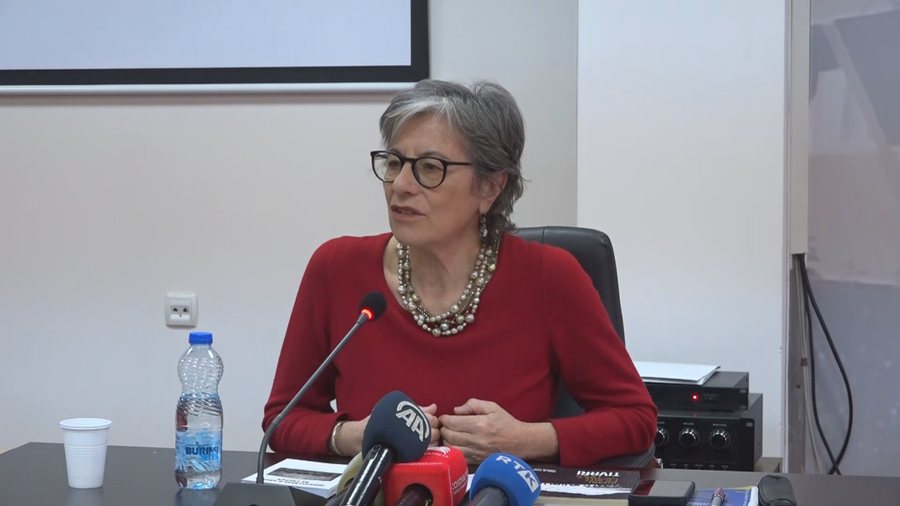
“The perseverance and resistance of the Trepça miners in the 1990s was a key moment in the history of Kosovo and marked the beginning of the end of Yugoslavia.” This opinion was mentioned by Albanologist Anna Di Lellio, during a lecture held in Pristina. Speaking at the Institute of Albanology, she presented the book titled “Yugoslavia collapsed in Trepça,” with the miners’ accounts.
"Trepça was the beginning of the end of Yugoslavia because in Trepça there was an opportunity to preserve this country to reform it with freedom and independence for each Republic, but without war, and it did not happen because Milosevic won, broke the strike and then imposed a state of emergency in Kosovo. Then Slovenia and Croatia said that we should leave because they said that if they were doing this to Kosovo, they would do it to us too. So, the miners' endurance and resistance is very important because it was a key moment in the history of Kosovo. In this book, there are people who speak and tell us the stories of arrests, strikes, repression, dismissals.... The strike failed because it was the strongest blow to Yugoslavia and this is the main part of the book," says Anna Di Lellio, an Albanologist.
The sociology professor further added that the price Kosovo paid for gaining independence was very high.
"After Prekaz, the war began and there were many thousands of people who were killed, 1 thousand who are missing, hundreds of thousands of men and women sexually raped, the price that Kosovo had to pay for independence was very high. It could have been different if the Yugoslav leadership had changed the Yugoslavia of that time."
Di Lellio, who has written her books based on oral histories, spoke about her first book about the Battle of Kosovo. She said that it was revealed that Miloš Kopić was Albanian and not Serbian.
(A2 Televizion)











